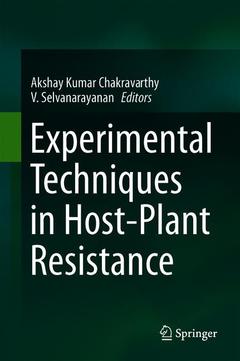Dr. A.K. Chakravarthy, Head and Principal Scientist, Division of Entomology and Nematology is an author of many books and over 300 scientific papers and 30 chapters in Entomology and Natural history. His interest includes Insects, birds, bats, rodents and mammals. With over three decades of experience of teaching, research and extension, Dr. Chakravarthy has been the investigator for over 35 research projects and has guided more than 25 students for post graduation. A Ph.D, from Punjab Agriculture University and Fellow from IARI, New Delhi, he is a member of several National and International scientific academia, an advisor, a panelist, a referee, reviewer, editor and he is associated with publication of several national and international journals worldwide. A field orientated, widely travelled biologist, he is actively working on novel approaches in Integrated Pest management, Host Plant Interaction, Vertebrate pest management, Biodiversity and environmental conservation issues. Recently he has published books titled - New Horizons in Insect Science: Towards Sustainable Pest Management, Economic and Ecological Significance of Arthropods in Diversified Ecosystems- Sustaining Regulatory Mechanisms and Arthropod Diversity and Conservation in the Tropics and sub-tropics by Springer.
Dr. V. Selvanarayanan, Professor of Entomology, Faculty of Agriculture, Annamalai University has 23 years of teaching experience. He was a gold medalist in post graduation and his doctoral research resulted in identification of new species of tomatoes resistant to insects. He was awarded with the Best Research Paper Award during 2006 and Distinguished Teacher Award during 2010 at Annamalai University. He has authored more than 80 research articles and four books. He is fellow of Plant Protection Association of India and life member in many professional societies. He has spearheaded many externally funded research projects. He had visited many countries and delivered inv




